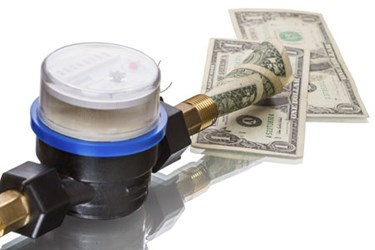The 4 Biggest Myths About Smart Meters

By Kevin Westerling,
@KevinOnWater

Smart meters are no doubt the way of the future. The efficiencies they bring to water distribution make widespread implementation all but inevitable. However, as with any advanced technology (especially in the water industry), there are bound to be starts and stops along the way.
Practical reasons for waiting on smart meters, such as financial or logistical challenges, are understandable. On the other hand, there are certain misconceptions that make hesitation unwarranted. I asked Chris King, global chief regulatory officer of Siemens AG’s Smart Grid Services, to help dispel the most prevalent of these false notions.
A 30-year industry veteran and chair of the Smart Energy Demand Coalition, King’s expertise was recognized when he testified before the U.S. Congress on grid modernization. Here he offers his “4 big myths” about smart grids in the water space:
1. Smart meters cost more.
In truth, when all the benefits are added up, they exceed the total costs. The basic criterion followed by regulators is to approve smart meter projects only when the total benefits exceed the total costs.
2. Only the utility benefits from smart meters.
Yes, utilities do benefit through lower costs of reading meters, improved meter accuracy, greater efficiency in dispatching their work forces, identifying water losses in the grid, and other ways. However…
Consumers get even greater benefits than do utilities. First, utilities pass through to consumers many of the savings they realize, as part of the ongoing regulatory and rate-setting process. More importantly, consumers benefit through having more information about their usage, which leads to lower water consumption — typically 5 to 10 percent over time. Also, consumers receive better service: estimated bills are eliminated, and utilities with smart meters can send alerts to consumers when utilities see ongoing water leaks or when the monthly-bill-to-date exceeds a consumer-set threshold.
4. Smart meters emit dangerous RF radiation.
Over 300 million radiofrequency (RF) meters, including gas and electric, are in operation around the world, going back over two decades. For all those meters and in all those years, not a single case of medical harm has been documented. Numerous government health agencies and scientific organizations around the world — including the National Academy of Sciences — have studied this subject in depth and have concluded that there is no concern for health risk. (See also: “Are Smart Meters Hazardous To Public Health?”)
5. Smart meters invade consumer privacy.
The reality is that smart meters record water consumption more frequently — for example daily or hourly — but the meters do not have any more information about the consumer’s premise or activity. In addition, regulators place strong restrictions on the use of smart meter data; for example, utilities cannot provide the data to a third party without a consumer’s permission.
(For more on meters, visit Water Online's AMR, AMI, and Metering Solution Center.)
What are some other smart meter implementation hurdles? Share your thoughts in the comments section below...
